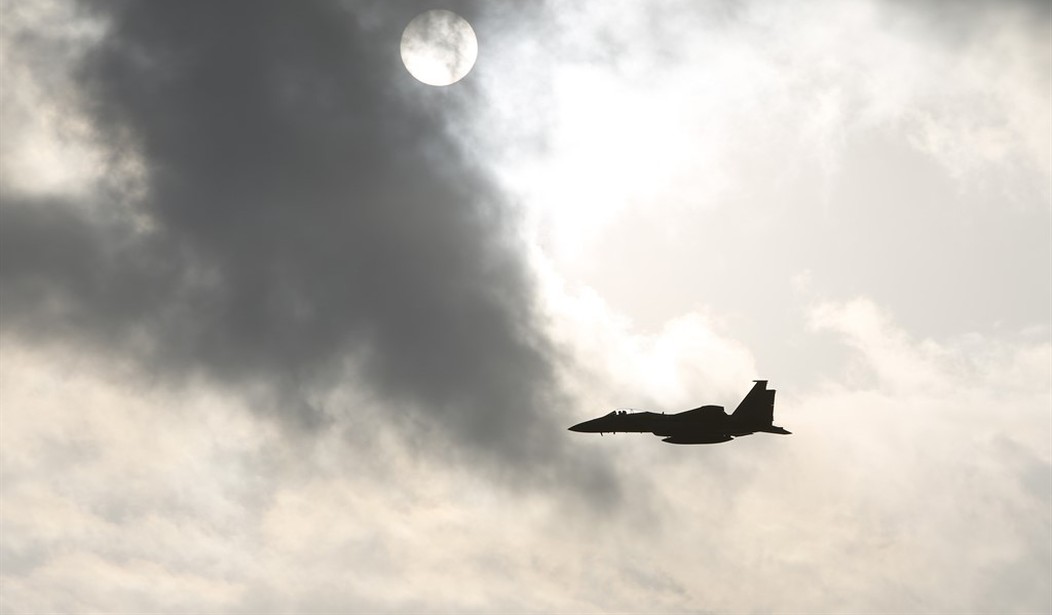American forces have been placed on "high alert" as of Friday, in anticipation of a possible attack by Iranian forces on either U.S. or Israeli assets in the Middle East. The attack, if it happens, is expected to come as soon as next week.
Senior US officials currently believe that an attack by Iran is “inevitable” – a view shared by their Israeli counterparts, that official said. The two governments are furiously working to get in position ahead of what is to come, as they anticipate that Iran’s attack could unfold in a number of different ways – and that both US and Israeli assets and personnel are at risk of being targeted.
A forthcoming Iranian attack was a major topic of discussion on President Joe Biden’s phone call with Israeli Prime Minister Benjamin Netanyahu on Thursday.
The attack is expected to be in retaliation for the killing of several Iranian officials in an Israeli air attack on the Iranian consulate in Damascus on April 1st. The Biden administration reportedly notified Iran that the U.S. had no part in the attacks; they appear to be trying to deflect Iranian efforts away from American forces and installations.
The US was quick to inform Iran that the Biden administration was not involved and had no advance knowledge of Monday’s strike on the embassy and has warned Iran against coming after American assets.
“The United States had no involvement in the strike and we did not know about it ahead of time,” a National Security Council spokesperson told CNN earlier this week.
Previously on RedState: Israeli Air Strike Punches Senior Iranian Revolutionary Guards Commander's Ticket
Israel Intercepts Arms Shipment From Iran to Gaza
Iran may not be receptive to the Biden administration's statements, as the Islamic nation has historically referred to the United States as the "Great Satan," while referring alternatively to the United Kingdom and Israel as the "Little Satan." It's not at all unlikely that if Iran is to launch attacks on the scale that the preparations would seem to imply, they may strike both U.S. and Israeli installations.
The worst-case scenario? An attack directly on Israel.
As of Friday, the two governments did not know when or how Iran planned to strike back, the official said.
A direct strike on Israel by Iran is one of the worst-case scenarios that the Biden administration is bracing for, as it would guarantee rapid escalation of an already tumultuous situation in the Middle East. Such a strike could lead to the Israel-Hamas war broadening into a wider, regional conflict – something Biden has long sought to avoid.
There is good reason to try to avoid such a confrontation, but while it takes all parties to prevent a war, it only takes one to start a war, and Iran may be at that point. The Islamic nation is beset with problems, including inflation, a moribund economy, and a population that is increasingly restive under the current Islamic dictatorship. While it's possible Iran's leadership would see a war as a way to distract from the failures of that nation's government, it would also likely lead to a much larger regional conflict as the various Muslim-majority nations start choosing up sides, which would make life for Israel, to say the least, unpleasant.
Earlier Friday, a statement from the United Nations took a distinctly anti-Israel tone.
Previously on RedState: UN Human Rights Council Writes Sternly-Worded Letter on 'Immediate Ceasefire,' Ending Arms for Israel
This is a developing situation. RedState will continue to watch this situation and update you as events warrant.
Related: UN Secretary-General António Guterres Calls for Unconditional Release of Hostages by Hamas















Join the conversation as a VIP Member